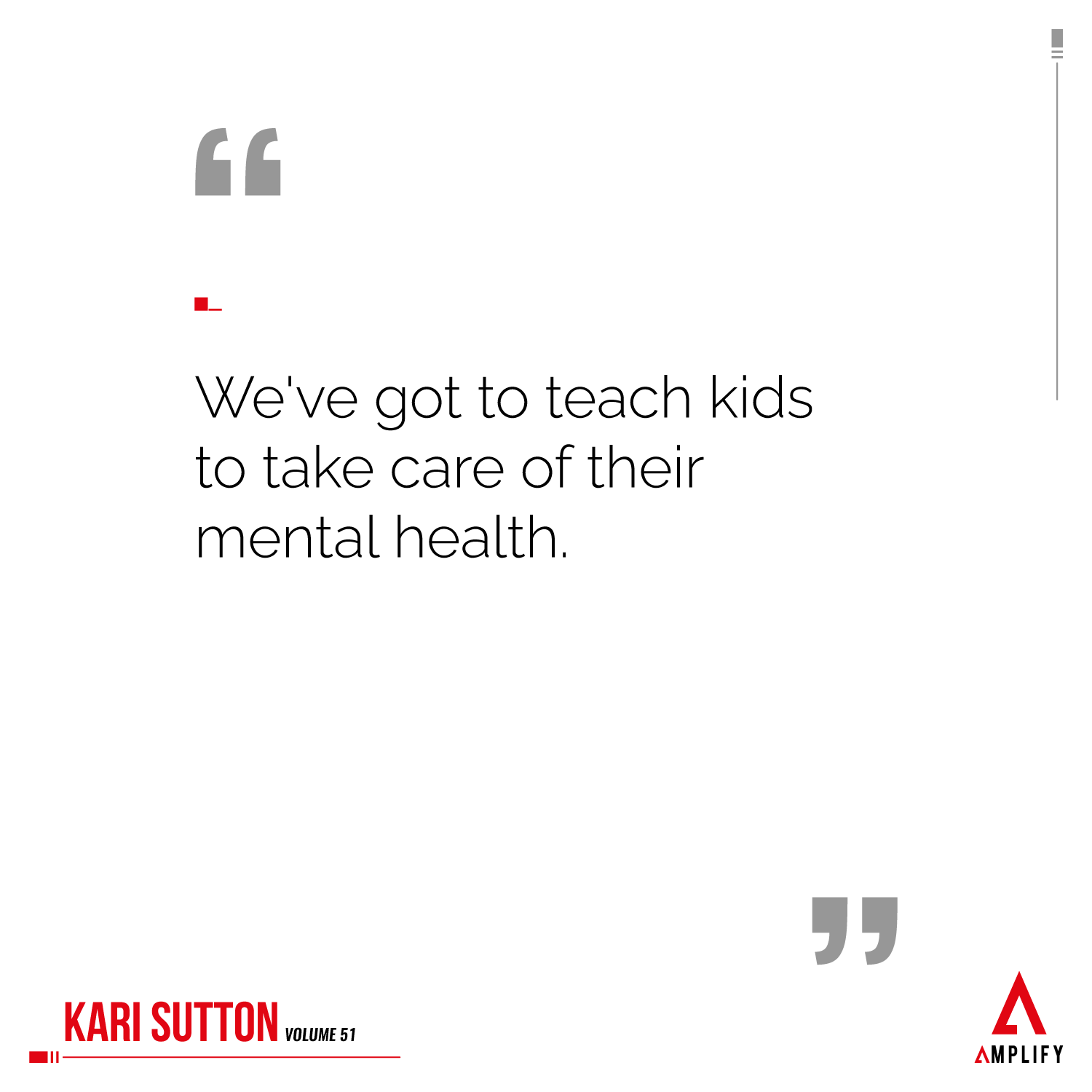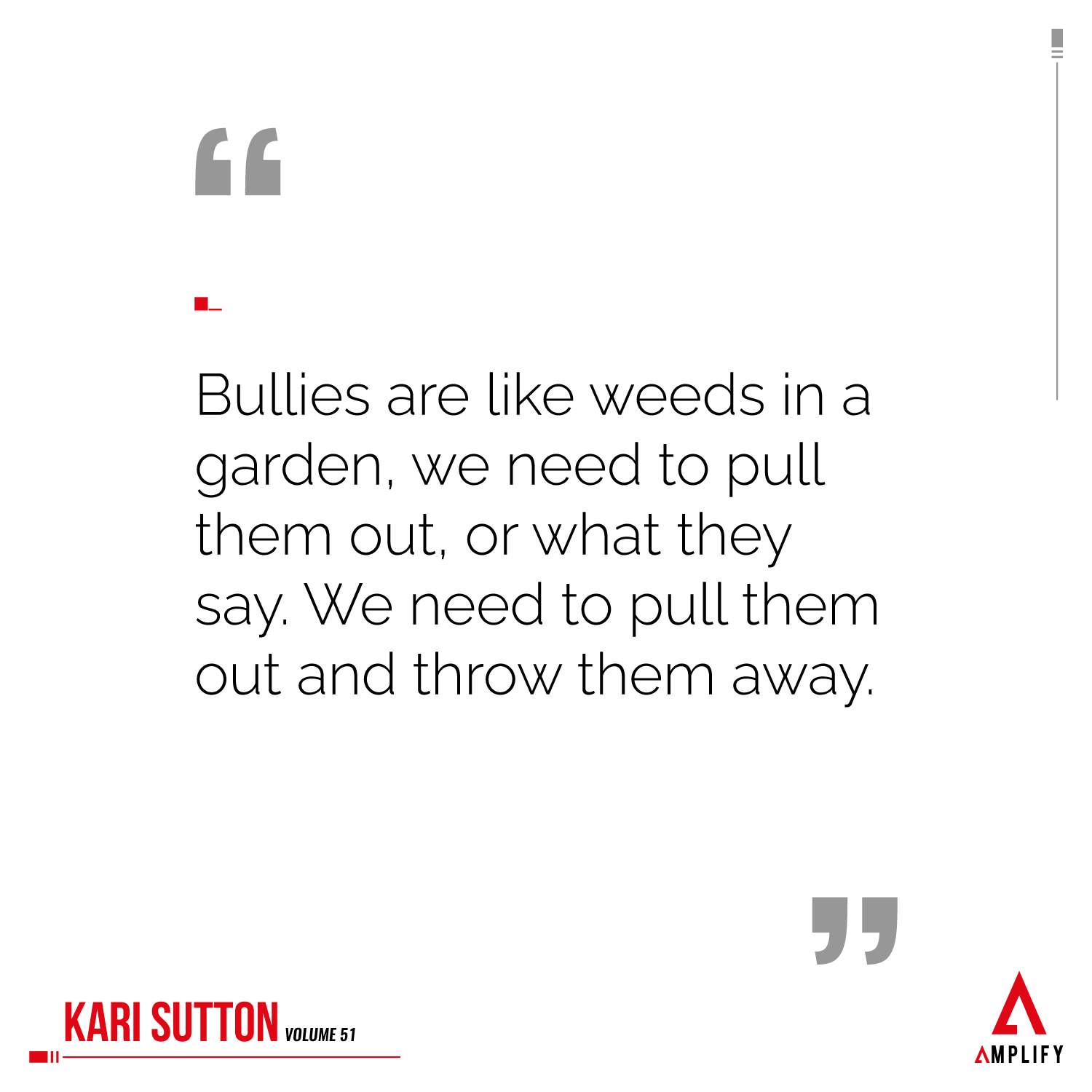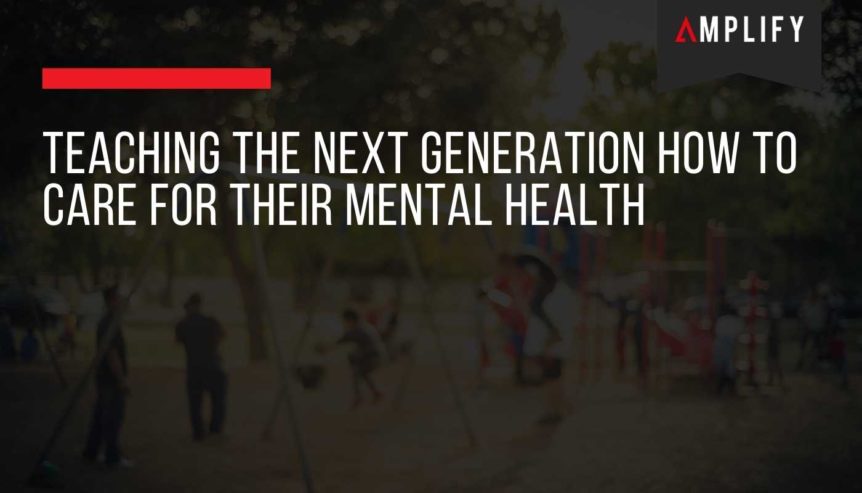We like to think that throughout our childhood, school teaches us all the things we need to succeed in life. Particularly from an academic perspective, we get schooled on all the essential subjects; maths, language, science, history, geography- but what about how to care for our emotions?
I don’t know about you, but I can’t think of one time that my education included how to effectively navigate my emotions, let alone where they come from or how to cope with them.
Research shows that children with higher emotional intelligence are better at paying attention, are more engaged in school, have more positive relationships, and empathy. So, with that in mind, why are so many of our kids growing up with a lack of emotional intelligence or the skills they need to maintain positive mental health?
Surely, these skills are just as necessary as an academic one?
In a recent volume of the Psychology of Entrepreneurship, I spoke with Kari Sutton. Kari has dedicated her entire career to supporting people who care for, and work with, children. She’s an expert in fostering children’s positive mental health and has helped over 25,000 children, parents, and educators become more emotionally stable and manage their emotions.
She gave some excellent advice on how we can teach the next generation to become more emotionally intelligent and manage our emotions.
“We’ve got to teach kids to take care of their mental health,” she explained.
Negative Talk Around Children
The plasticity of a child’s brain is insane. They learn and retain information so quickly that it’s almost obvious that what we do around them can become learned behaviours, fast. But, I know that being a parent is one of the most challenging jobs on the planet. As I always say, mums are the original entrepreneurs. And while we want the best for our children, we can either slip up or lose our cool.
“Caring and raising and being a mom, staying at home is one of the most important jobs you can do because you are raising the next generation,” says Kari. But sometimes, we can all fall out of the “super parent role,” and become frustrated.
“When parents are going, “Oh, crap. I wish they’d go back to school; I can’t stand this. ‘Oh, you little mongrel, would you stop doing that?’ You could be instilling a damaging self-view,” explains Kari. “Look, we are all doing the best we can,” she reassures, but “if that’s what they hear more often than not, then what that child is going to grow up with and look in the mirror is, ‘Oh, you mongrel’.”
What you say matters, especially the words and phrases you use around children.
Strive To Express Gratitude
Gratitude and self-awareness are an essential part of increasing your emotional intelligence. If it’s not already part of your routine, you could be missing some significant benefits.
Expressing daily gratitude enhances empathy and reduces aggression, improves self-esteem, increases mental strength, and may even play a significant role in overcoming trauma.
Kari suggests that asking your kid about three good things that happened to them during the day is enough to instil a sense of optimism. “This can start at two or three years old,” she explains. It could be something as simple as “Oh, I really liked those cookies that grandma gave me’, or ‘I jumped in a mud puddle.’”
For tweens and teens, aim more towards refocusing. Before they go to bed at night, it’s a good idea to prime their brain for positive things. Teenagers are prone to holding onto negative biases, so activating that gratitude button may be enough to turn things around.
“The negativity bias is we Velcro the bad and Teflon the good.”
Bullying Is a Part of Life- But Don’t Let It Consume You
From the playground brawl to the multi-million-dollar office, bullies are everywhere.
“Bullying is rampant throughout society,” Kari exclaims. “If you look at what happens in corporate, you look at even what happens in different educational systems or educational institutions; there is bullying all the way along.”
When it comes to our kids and how they contend with bullying, we have to build their resilience and provide them with the right tools.
 Kari likes to go for the “is that true?” approach. For example, if your kid comes home and says, “A bully at school called me a Scrawny Scragg!” The best thing you can do is question it. “You come home and say, “Is that true? Is what they’re saying true or is that just their idea?” So if they say, “Oh, you’re a Scrawny Scragg.” Is that true? No, you’re actually healthy.”
Kari likes to go for the “is that true?” approach. For example, if your kid comes home and says, “A bully at school called me a Scrawny Scragg!” The best thing you can do is question it. “You come home and say, “Is that true? Is what they’re saying true or is that just their idea?” So if they say, “Oh, you’re a Scrawny Scragg.” Is that true? No, you’re actually healthy.”
“What I talk to families and teachers about is saying, look, help them build positive self-belief,” Kari suggests.
Instead, reiterate what they have done well, and explain that it’s just someone’s opinion or point of view and it isn’t a fact. So, ensure that the child realises that they’re loved and that you care about them to reinforce their self-belief.
We want the best for our children. They are, after all, the future. How they’re taught to cope with emotional situations at a young age can be essential in how they deal with relationships and difficult situations later on in life.
To hear more of this inspiring conversation, listen to Psychology of Entrepreneurship 51. Volume: Kari Sutton: Emotional Intelligence. Out now.
Author: Ronsley Vaz
Ronsley is the founder & chief day dreamer at AMPLIFY. He is an author, speaker & serial entrepreneur.
He has a Masters’ degree in Software Engineering and an MBA in Psychology and Leadership. He is known as the creator of We Are Podcast – the first Podcasting Conference in the Southern Hemisphere, and the host of The Bond Appetit Podcast and Should I Start a Podcast. He has an audience of over 3 million in 133 countries.

